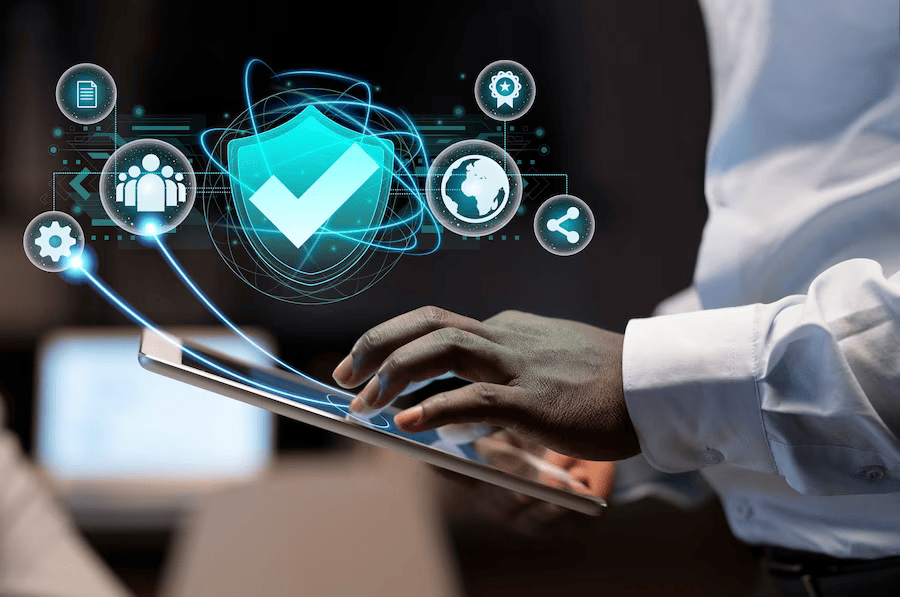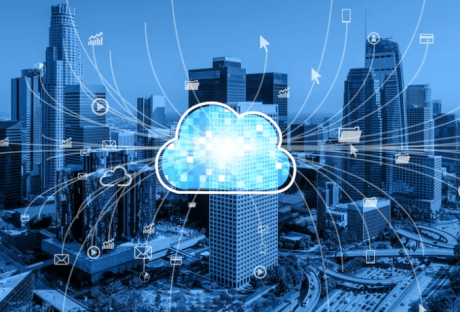Cybersecurity has become a crucial aspect of our lives in the digital age. With technology advancing at an unprecedented rate, we are more connected than ever before. However, this increased connectivity comes with a heightened risk of cyber threats. As such, it is imperative that we understand the importance of cybersecurity and take measures to protect ourselves from potential harm.
In this article, we will delve into the risks associated with cyber threats and explore ways to protect personal information online. We will also discuss the significance of implementing cybersecurity measures in the workplace and how cyber attacks can have significant economic impacts on organizations. By understanding these issues, we can take proactive steps towards safeguarding ourselves against malicious actors seeking to exploit vulnerabilities in our interconnected world.
Contents
- 1 Understanding the Risks of Cyber Threats
- 2 Protecting Your Personal Information Online
- 3 Implementing Cybersecurity Measures in the Workplace
- 4 The Economic Impact of Cyber Attacks
- 5 Frequently Asked Questions
- 5.1 How does cybersecurity affect the development of new technologies?
- 5.2 What are some common misconceptions about cybersecurity?
- 5.3 How do individuals and organizations stay up-to-date on the latest cybersecurity threats and solutions?
- 5.4 What role do government regulations play in cybersecurity?
- 5.5 How does cybersecurity impact international relations and diplomacy?
- 6 Conclusion
Understanding the Risks of Cyber Threats
The prevalence and severity of cyber threats highlight the need for a comprehensive understanding of their risks in order to effectively mitigate potential harm. Cybersecurity awareness is crucial in today’s digital age, as cyber crime trends continue to evolve and become more sophisticated. A lack of knowledge or preparedness can lead to devastating consequences, including financial loss, reputational damage, and even physical harm.
One major risk associated with cyber threats is data breaches. As organizations collect more personal information from individuals, they become prime targets for hackers seeking to steal sensitive data such as credit card numbers, social security numbers, and medical records. Another prominent threat is ransomware attacks, where malicious actors encrypt a victim’s files and demand payment in exchange for restoring access. In addition to these types of attacks, there are also emerging risks related to the Internet of Things (IoT) devices that are increasingly being integrated into everyday life. Understanding these various risks is essential for developing effective cybersecurity strategies that protect against potential harm.
Protecting Your Personal Information Online
Effective measures to safeguard personal information online are crucial in our interconnected world, where the proliferation of digital devices and platforms has made such data vulnerable to exploitation by malicious actors.
Online privacy is a critical concern that must be addressed as individuals increasingly share more information about themselves online. Unfortunately, data breaches have become commonplace events that can lead to identity theft, fraud, and financial loss for victims. Expert network security services can prevent your system from malicious attacks.
To protect one’s personal information online, there are several steps that can be taken. Firstly, it is essential to use strong passwords and multi factor authentication when logging into various accounts. Secondly, individuals should be mindful of the websites they visit and refrain from sharing sensitive information on unsecured sites or public Wi-Fi networks.
Thirdly, regularly monitoring one’s credit reports and bank statements can help detect any suspicious activity early on. Finally, using antivirus software and keeping one’s operating system up-to-date can prevent malware attacks aimed at stealing personal data. Overall, taking proactive measures to secure one’s digital footprint can go a long way in mitigating the risks associated with cyber threats in today’s digital age.
Implementing Cybersecurity Measures in the Workplace
Implementing adequate cybersecurity measures in the workplace is essential for protecting sensitive business information and avoiding costly data breaches. One of the most important steps in ensuring cybersecurity in a company is training employees on how to identify and respond to potential cyber threats.
Employees should be educated on proper password management techniques, such as using strong passwords and changing them regularly, as well as being cautious when opening email attachments from unknown sources or clicking on suspicious links. Additionally, companies should establish clear cybersecurity policies that outline procedures for reporting incidents and breaches, as well as guidelines for the use of company devices and networks.
In addition to employee training and policy development, there are several technical measures that can be implemented to enhance cybersecurity in the workplace. These include implementing firewalls, antivirus software, intrusion detection systems, and encryption tools to protect against unauthorized access or data theft. Regular software updates should also be conducted to ensure that vulnerabilities are patched promptly. By taking a comprehensive approach to cybersecurity, businesses can mitigate their risk of cyber attacks and safeguard critical information assets.
The Economic Impact of Cyber Attacks
Cyber attacks can have significant economic consequences for businesses, and it is important to understand the potential impact in order to develop effective strategies for prevention and response. The cost of recovery from a cyber attack can be substantial, with expenses related to repairing or replacing affected systems, notifying customers and stakeholders, conducting forensic investigations, and implementing improved security measures. In addition to these direct costs, there may also be long-term consequences such as damage to reputation or loss of business opportunities.
The impact of a cyber attack on a company’s bottom line can vary depending on factors such as the severity and duration of the attack, the type of data that was compromised, and the size and industry of the targeted organization. Small businesses are particularly vulnerable as they often lack adequate resources to invest in robust cybersecurity measures. However, even large corporations with sophisticated security systems in place may fall victim to cyber attacks.
It is therefore imperative for companies across all sectors and sizes to prioritize cybersecurity as an essential aspect of their operations. By doing so, they can mitigate potential economic losses while also protecting their reputation and maintaining customer trust.
Frequently Asked Questions
How does cybersecurity affect the development of new technologies?
Innovation and cybersecurity are two parallel concepts that have become increasingly intertwined in the digital age. The development of new technologies has brought about new security challenges, which require the implementation of effective cybersecurity measures to safeguard against cyber attacks.
On one hand, innovation drives progress and economic growth, but on the other hand, it also introduces vulnerabilities that cybercriminals can exploit. Therefore, balancing security and progress is a crucial aspect of technology development. A lack of adequate cybersecurity measures can lead to data breaches, financial losses, reputational damage, and even physical harm in some cases.
As such, organizations must prioritize cybersecurity alongside innovation to ensure that their technologies remain secure from evolving cyber threats while still promoting progress.
What are some common misconceptions about cybersecurity?
Common misconceptions about cybersecurity are prevalent and can lead to a false sense of security. Top myths include the belief that only large companies are targets for cyber attacks, that antivirus software is enough protection, and that hackers always come from foreign countries. These misunderstandings can leave individuals and small businesses vulnerable to cyber threats.
Effective training techniques are necessary to increase awareness of these misconceptions and educate users on how to protect themselves against cyber attacks. Cybersecurity education should be a priority in all organizations, as it can prevent potential breaches and minimize damage if an attack does occur. By debunking misunderstandings through proper education, individuals can better understand the importance of cybersecurity in our digital age.
How do individuals and organizations stay up-to-date on the latest cybersecurity threats and solutions?
According to a recent report by Cybersecurity Ventures, global cybersecurity spending is expected to reach $1 trillion by 2025. As the threat landscape continues to evolve and cyber attacks become more sophisticated, individuals and organizations must stay up-to-date on the latest cybersecurity threats and solutions.
Cybersecurity training programs have become increasingly popular, with many companies investing in employee education as a means of reducing risk. Additionally, cybersecurity awareness campaigns are often used to inform individuals about potential threats and best practices for staying safe online.
By keeping up-to-date on the latest developments in cybersecurity and implementing proactive measures, both individuals and organizations can better protect themselves against cyber attacks.
What role do government regulations play in cybersecurity?
Government oversight plays a crucial role in ensuring cybersecurity. By establishing regulations and standards, governments can help protect organizations and individuals from cyber threats. Compliance with these regulations is important for industries to ensure they are meeting the necessary security requirements.
The government also has the power to hold companies accountable for any breaches that occur due to negligence or non-compliance. However, it is important to note that government regulations are not always enough on their own. It is vital for organizations to take proactive steps towards securing their systems and networks, rather than relying solely on industry compliance with government regulations.
How does cybersecurity impact international relations and diplomacy?
In the current geopolitical landscape, cybersecurity has emerged as a critical issue that shapes international relations and diplomacy. Diplomatic responses to cybersecurity threats have become essential for maintaining global security.
The increasing frequency and sophistication of cyberattacks have led to rising concerns among nations, with governments now recognizing the need to strengthen their cybersecurity measures. The impact of cybersecurity on international relations has been significant, with states using cyber capabilities as tools of foreign policy and espionage.
In this context, developing effective diplomatic strategies to enhance cybersecurity cooperation between countries is crucial in safeguarding national interests and promoting global stability.
Conclusion
Cybersecurity has become an increasingly important issue in the digital age. With the rise of technology and connectivity, cyber threats have become more sophisticated and prevalent, posing risks to individuals and organizations alike. It is crucial for individuals to understand the potential risks associated with cyber threats and take measures to protect their personal information online. Moreover, businesses must implement robust cybersecurity measures to safeguard themselves against financial losses and reputational damage resulting from cyber attacks.
One interesting statistic that highlights the importance of cybersecurity is that global cyber crime damages are projected to reach $10.5 trillion annually by 2025, according to Cybersecurity Ventures. This staggering figure underscores the need for businesses and individuals alike to prioritize cybersecurity as a critical aspect of their operations. Failure to do so can result in devastating consequences that could impact not only financial stability but also reputation and trust among customers or stakeholders.
In conclusion, cybersecurity is a vital component of our digital landscape today. The risks associated with cyber threats are numerous, making it imperative for everyone within this ecosystem – from individuals to corporations –to take proactive steps towards protecting themselves against these dangers. Whether it be implementing stringent security protocols or staying vigilant about online activity, efforts towards strengthening cybersecurity will ultimately lead to a safer digital environment for all users.























